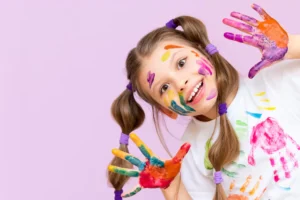The Role Of Art In Promoting Positive Social Behaviors In Children
![]()
- Posted by abrakadoodle.com.sg
- Categories Art Education
- Date 10 March 2023
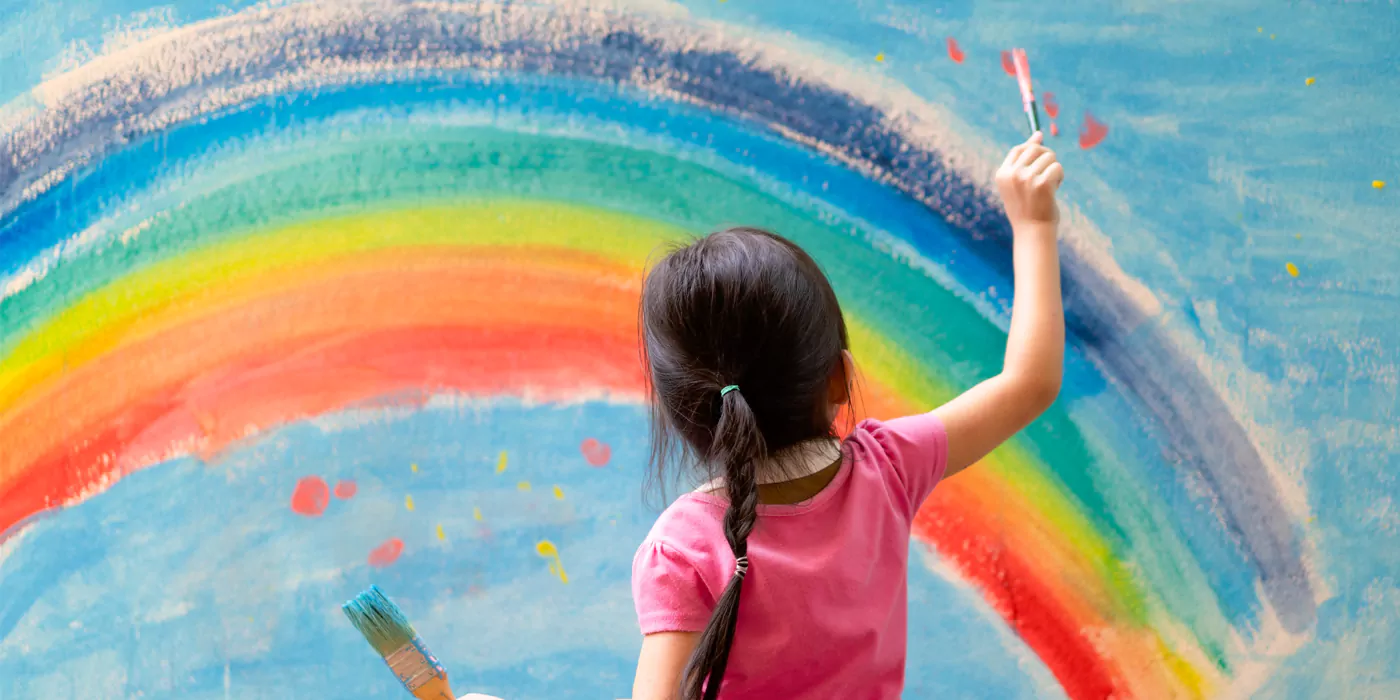
“The arts take us to another world where we can explore our thoughts and feelings free of fear of stigma or judgement. They help children to express things that they sometimes cannot say in conversation, and to
celebrate feelings and thoughts that previously troubled them. The creative process is also a curative process.”
– Professor Peter Fonagy, CEO, Anna Freud Centre
Children are born curious. From the moment they gain control over their limbs, they are at work to put themselves out into the world to see how it all works. Every waking moment is devoted to exploring, observing and imitating, figuring out the world around them. This unrestricted search helps children form connections in their brain, it helps them learn — and sows the seed of building self-esteem through art. it also happens to be great fun.
Art in early childhood has a natural tendency to support free play in children. Engagement with the arts has a positive impact on the mental health and well-being of children. Studies have shown that introducing art in early childhood can provide children with numerous benefits, including improved cognitive abilities, emotional regulation, and social skills.
Regardless of ability, engaging in any sort of visual expression results in activating the reward pathways of the brain, which means that you feel good, and begin to perceive art as a pleasurable experience.
According to Christianne Strang, professor of neuroscience at the University of Alabama, “Creativity in and of itself is important for remaining healthy, remaining connected to yourself and connected to the world.”
Visual arts have positive effects on the brain, health, and well-being of children. Encouraging children to explore and experiment with different art materials can be a fun and rewarding way for them to learn and grow. Here are some ways in which art in early childhood can benefit children.
Table of Contents
ToggleUsing art for positive outcomes
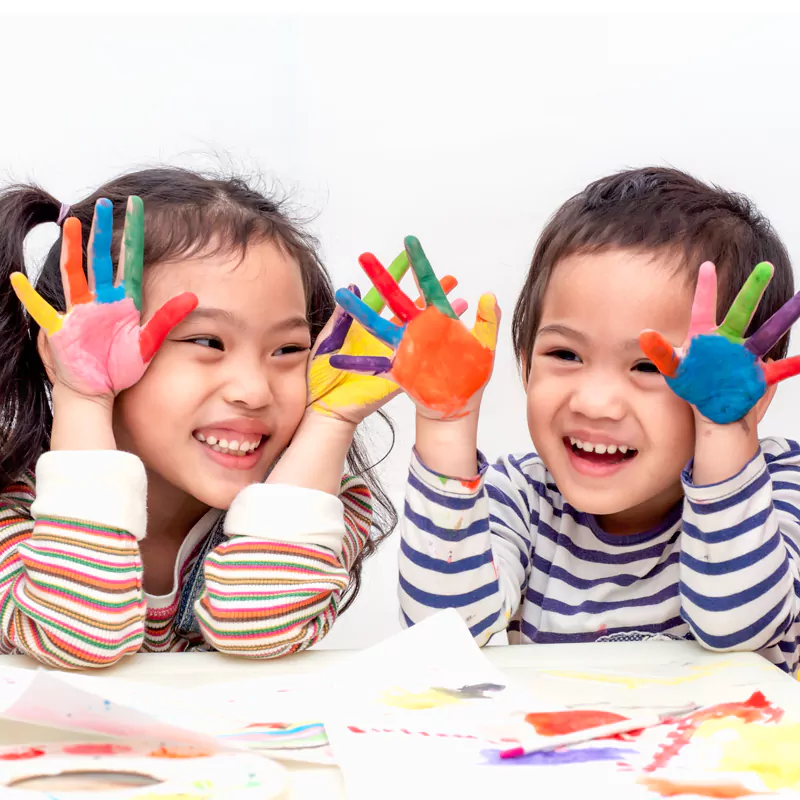
Creativity and imagination: Art allows social-emotional development in children as they learn to explore their imaginations and express themselves in new ways. They experiment with different materials, colours, and techniques, which can boost their confidence and self-esteem. Art is a means for expressing creativity, and it encourages children to think outside of the box. Creativity is a valuable skill in the modern world, as it helps individuals to solve problems, come up with new ideas and innovate. Through art, children learn to think creatively and develop their critical thinking skills, which in turn can be used by children throughout their lives.
Emotional regulation: By introducing art in early childhood you teach children to express their emotions in a safe and healthy way. It can help them process difficult feelings and experiences, and find a sense of calm and relaxation. Art in early childhood shows a way for children to express themselves freely, without any judgment or criticism. Children can use it to communicate their feelings, thoughts, and experiences, which can help them to understand themselves better. Art in early childhood can also be a form of therapy for children who have experienced trauma or are struggling with emotional issues. Through art, children can express themselves freely and without holding anything back.
Problem-solving and critical thinking: When creating art, children are often faced with challenges and obstacles that they need to overcome. This can help them develop their problem-solving and critical-thinking skills, which can be applied to other areas of their lives. Art for children is a complex activity that requires the use of many different cognitive skills, including memory, attention, and perception. When children engage in art, they are exercising their brains in a variety of ways. Research has shown that art for children can enhance cognitive development, particularly in areas such as problem-solving, spatial reasoning, and creativity.
Foster social skills: Art is an activity that can help children to develop their social skills. Art nurtures social skills in early childhood. Children learn to collaborate on art projects, share ideas, and give feedback to each other. Through art, children learn how to communicate effectively and work together towards a common goal. Art can also provide children with a sense of community and belonging, which is essential for their emotional well-being. Art can expose children to different cultures and traditions, and help them develop an appreciation for diversity and the world around them.
As parents, it is crucial to encourage their children to engage in art activities as it encourages positive social behaviours in children. By doing so, you are helping your child develop into a well-rounded individual who is equipped with the skills and knowledge she needs to succeed in life.
Art & Well-being
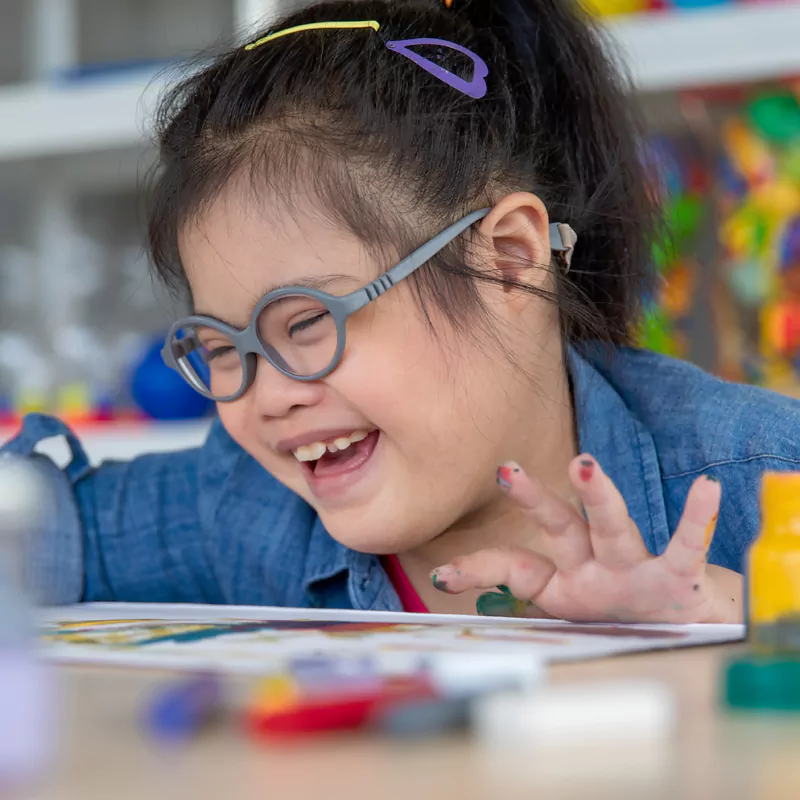
Parent should consider incorporating arts into the daily lives of their children as a means of improving their overall health. Well-being is a holistic concept that encompasses many different aspects of our lives. It’s not just about feeling good all the time, but also about being able to cope with life’s ups and downs in a healthy way.
Emotions such as sadness, fear, anger, and frustration are all normal and can serve a purpose in our lives. They can help us learn, grow, stay safe, and build meaningful connections with others. All-round social-emotional development in children will enable them to manage these emotions in a positive way, rather than letting them take over their lives.
Having a sense of curiosity about the world, the ability to bounce back from failure and the capacity to adapt to change and challenges are all important aspects of well-being. In the context of children, well-being means creating an environment where they feel supported, empowered, and safe.
Raising polite and respectful children means providing opportunities for them to learn and grow, while also helping them develop the skills they need to manage their emotions and navigate the challenges of daily life.
Learning through play
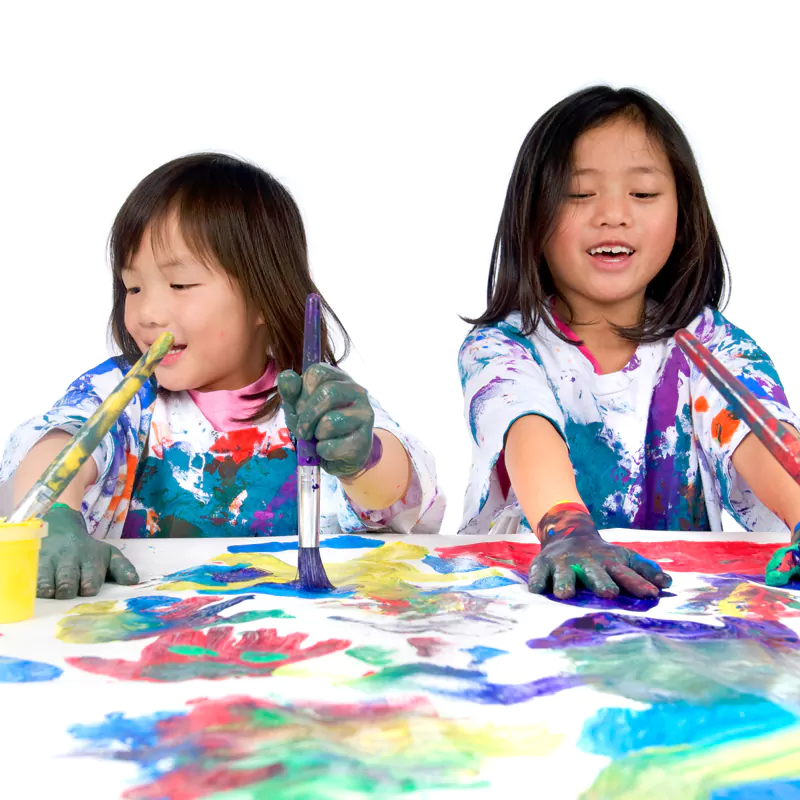
Giving your child a creative outlet can help relieve stress and resolve problems that may be happening in her life. Artistic expression can also help facilitate learning.
Talk to your child about her work: It’s often not easy to decode a child’s drawings, but your child knows exactly what it is. There is no point asking your child a direct question about what she has drawn. Instead, wait a while and then follow it up with an open-ended question, “Is there a story you are trying to tell me through your picture?”
Imitate your child: Avoid drawing your own picture. Sit down next to your child and imitate her every movement and action. Making small lines and drawing circles. Let your child be more imaginative and creative on her own. Allow her to take the lead.
Ample choices: Gather a wide range of materials for your child to use like watercolours, pencils, sharpies, chalk in different colours and sizes, play dough, crayons, scissors and readymade stampers. Add unexpected materials like Q-tips, dinosaurs, toys, dry pasta or beans… mix them all up.
Support, don’t lead: Let your child take the initiative and choose whatever material she wants and how she wants to use it. She may want to rip the paper wrapping off the crayon and use it sideways, instead of its tip. Let her do as she pleases.
Keep it playful: Try not to have a plan, and leave the play open-ended. No one has an outcome in mind. Just dive in, everyone is ready to explore, and try out different things to see what can happen. Leave everything to your imagination. Your child might make a big mess or change her mind several times — this is all part of the creative process.
Focus on the process, not the product: Encouraging your child to do unstructured art. It will teach her to express herself freely, and not worry about what others think. Don’t pay too much attention to the end product, nor praise it. Focus on the process, and encourage the effort.
Let go: As long as a child is safe, let her explore. She may spend the majority of her time sharpening coloured pencils instead of actually drawing with them. Children learn through play, exploring and trial and error. When you give them the freedom to discover, they will be learning to create and experiment in new and innovative ways.
Prepare for the journey
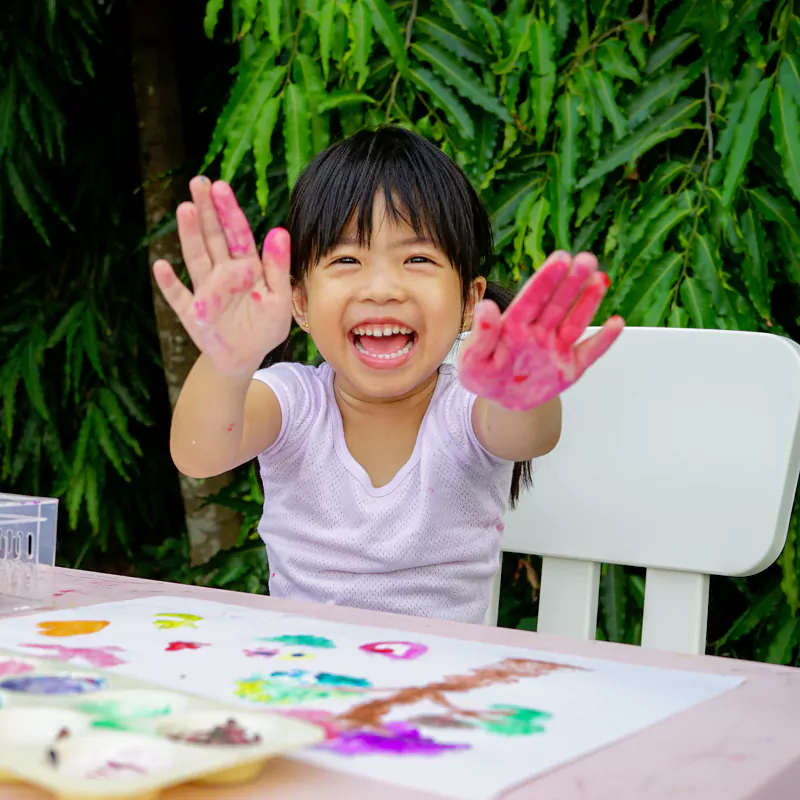
Encouraging artistic expression can have many benefits for children, including improving their cognitive, social, and emotional development. A few tips to support your child’s artistic journey:
- Create a dedicated space for art-making. Set up a space where your child can freely create without worrying about making a mess. This can be a corner of the living room or a separate room altogether. Make sure the space is well-lit and stocked with art supplies.
- Take your child to museums, galleries, and art shows, music concerts, expose them to different forms of art. This can help expand their creativity and inspire them to try new things.
- Encourage collaboration. Art-making can be a great way for children to work together and learn from each other. Encourage your child to collaborate with siblings or friends on art projects.
- Be patient. Art-making can be messy, and it may take some time for your child to create something they’re proud of. Encourage them to keep trying and be patient with their process.
- Celebrate success. When your child creates something they’re proud of, celebrate their success. Hang their artwork up in a prominent place in your home, or take a picture to share with family and friends. This can help boost your child’s confidence and encourage them to keep creating.
About Abrakadoodle
Abrakadoodle is dedicated to supporting children in their early years and building strong foundations to ensure they get the best head start. Process Art learning experiences, for instance, inspire toddlers and young children to think differently, be innovative, and explore new ways to learn about interesting things found in the real world.
Our art lessons also change the way a child discovers and imagines. Igniting her mind to think, play and learn like never before. If you like to enrol your child in our art classes or find out more about why art classes for childhood development is important, give Abrakadoodle a call. Or better still, make an appointment with the head of a centre near you.
You will get hands-on exposure to an experience that will make you see art therapy in a way that adds value to your child’s life.
Please note: Abrakadoodle classrooms are thoroughly sanitized every day — the tables, the chairs, the children’s activity stations and everything else the child might touch is made safe and clean. They also wear a mask, wash their hands frequently, and practice social distancing.
Frequently Asked Questions
Art is a great way to encourage their creativity and help them develop their social skills. Engaging in art in early childhood can provide numerous benefits for children, including:
1. When children engage in art activities with others, such as in a group art class, they learn to share materials, take turns, and collaborate, which can improve their social skills.
2. Art activities can be calming and therapeutic, which can help reduce stress and anxiety in children.
3. Art activities encourage children to think creatively and come up with their own ideas and solutions.
4. Art provides children with a way to express their thoughts, feelings, and ideas in a nonverbal way.
5. Art activities involve problem-solving, decision-making, and critical thinking, which can help develop children's cognitive skills.
Art activities can also help build strong relationships between parents and their children as they work together to create something unique.
Engaging in art activities can be an excellent way to boost children's confidence and self-esteem in several ways:
- Self-expression: Art provides a non-judgmental and non-verbal way for children to express themselves.
- Sense of accomplishment: When children create something, they feel a sense of pride and accomplishment.
- Problem-solving skills: Art activities often require problem-solving, such as figuring out how to create a specific shape or color.
- Creativity and imagination: Art allows children to realize their potential for creating something unique and original, boosting their confidence in their ability to think creatively and independently.
Encourage your child's confidence and self-esteem through art activities that are both enriching and educational.
Art activities can provide a safe and non-judgmental space for children to express their feelings and emotions, which can help them understand and regulate their emotions better. Additionally, creating art can give children a sense of control and mastery over their environment, which can boost their self-esteem and confidence. This, in turn, can lead to better emotional regulation as children feel more capable of handling difficult emotions. Hence these activities are essential for raising polite and respectful children who have a healthy self-esteem and understand how to express themselves in a constructive manner. For example, if a child is feeling angry, they might use bold, dark colors or rough, jagged lines in their artwork to express that emotion.
Social-emotional development in children involves the child's ability to interact with others, form relationships, and understand their own emotions. Here are some important aspects of emotional and social development in children:
- Self-awareness: Children need to learn about their own emotions, strengths, and weaknesses.
- Self-regulation: Children need to learn how to manage their emotions and behaviors in a healthy way.
- Empathy: Children need to learn how to understand and care about the feelings of others.
- Social skills: Children need to learn how to interact positively with others.
- Relationship building: Children need to learn how to form and maintain healthy relationships with others.
Art activities allow children to explore their emotions and feelings, which can help them to better understand themselves and the world around them.
You may also like
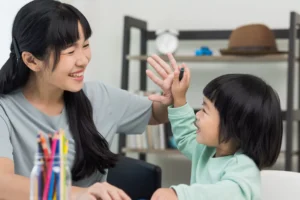
Art Lessons Help Children To Think And Express Themselves Clearly
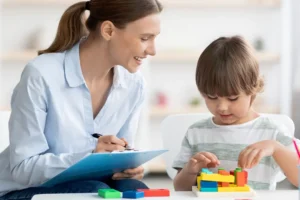
How Art Therapy Activities benefit young children
